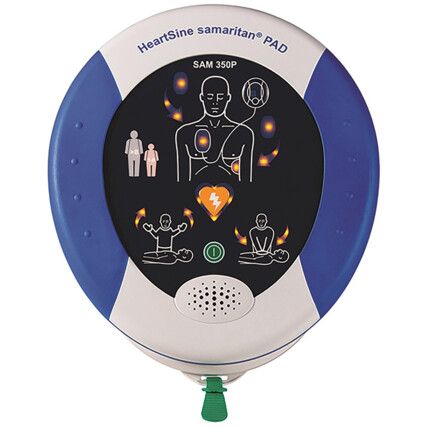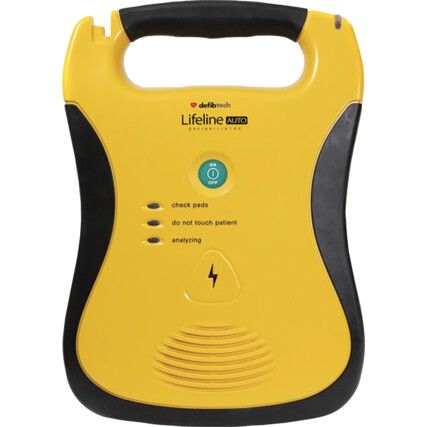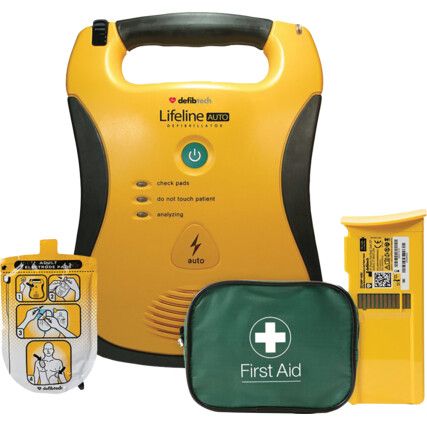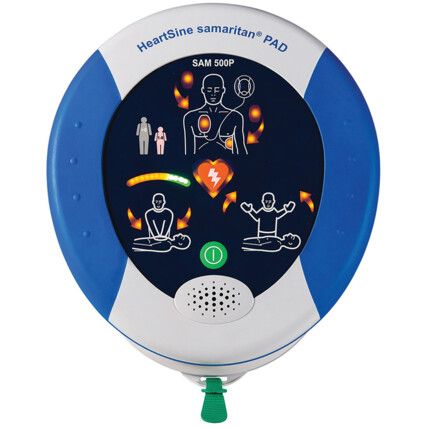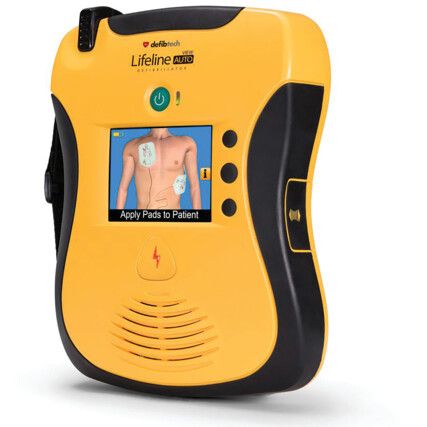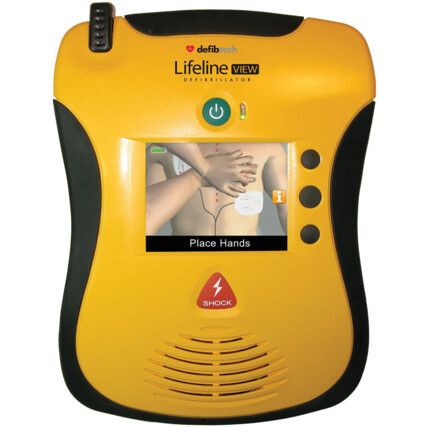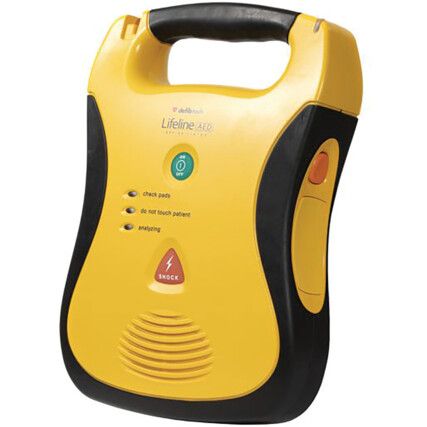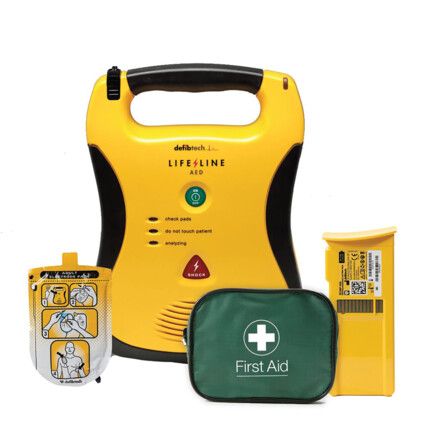Defibrillators
Choose from our wide range of defibrillators online now at Cromwell. We stock durable, multi-lingual defibrillators, including automatic, semi-automatic and trainer AEDs. We carefully select our first aid equipment from market-leading brands, like St. John's Ambulance®, Reliance Medical® and Defibtech®.
Why buy defibrillators & AEDs?
When someone goes into cardiac arrest, having an AED on hand is the difference between life and death. The moments between the beginning of an attack and treatment with a defibrillator are critical, which makes it one of the most important pieces if first aid equipment in your arsenal.
Defibrillator & AED types
There are two main type of defibrillator, one used by medical professionals and others designed for use by non-medical personnel and members of the public...
• Automated External Defibrillators (AEDs) - These automated defibrillators are bright and easy to spot. Users need only apply the pads according to the device's instructions and the AED will do the rest, analysing the patient to defibrillate the necessary level of shock required.
• Manual Defibrillators (MDs) - This type of defibrillator is used by medical personal, like paramedics, nurses, and doctors. While an AED is entirely automated in its analysis of the patient and their needs, a manual defibrillator has adjustable shock settings, and it's the trained operator who determines the level of shock required.
FAQs
When should you not use an AED?
An AED is a lifesaving device, but there are times when it's not safe to use one on a patient. If the person is wet, either from sweat or water, do not use an AED on them. Similarly, if you discover that the patient is wearing a medical patch or has a pacemaker installed, then an AED can't be used. Finally, for the untrained, an AED should never be used on a child who is younger than a year in age.
What heart conditions require a defibrillator?
Heart conditions that cause a heartbeat to speed up or to beat erratically are the ones that can be treated by defibrillation during an attack. Ventricular tachycardia and ventricular fibrillation are conditions that speed up the heart and prevent blood from circulating around the body. While arrhythmia causes an erratic heartbeat which can cause the same kind of blood flow issues.
Defibrillators will have no effect on a heart that has stopped beating. The electric shock they deliver resets the heartbeat and allows it to return to a normal rhythm.
